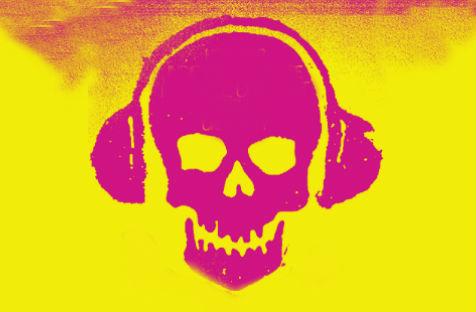One of the problems with embracing sloppy language like “piracy” is that it fails to draw a distinction between a college student who “pirates” a few albums online (and may very well be later paying for concert tickets, merchandise or the albums themselves), a bootlegger making a few dollars by selling pirated DVDs in your local metro station, and a Somali gang member who pirates an oil tanker in the Gulf of Aden, or the real problem for our purposes—pirate distributors like The Pirate Bay who sell advertising or subscriptions on the backs of exploited creators.
When we accuse someone of being a pirate, don’t we normally assume that person is collecting money somewhere in the process? The whole point of pirating goods is to sell them in the black market or collect a ransom. So a pirate isn’t simply a person who copies or steals a product, but also someone who seeks to profit financially from this violation of our laws and/or social contract.
Someone who makes illegal copies of cultural goods is engaging in counterfeiting—I don’t mean to obscure that fact—but calling that college version of myself a “pirate” fails the test of common sense. Such misapplied terminology weakens the word itself and, therefore, also its meaning and utility. By using the wrong word—the wrong symbol— as the keystone of any discourse, that discourse will eventually collapse from its own shoddy construction, leaving a messy pile of mortar that must be cleared before we can cross over to the gates to progress.
While authorities believe themselves to be playing tough, castigating the consumer pirates, they act out a futile scorched-earth policy with past and potential customers. By accepting the term, we begin a discussion on the terrain of personal attacks and accusation. If someone calls me a “pirate” or a thief, I quite naturally will become defensive. ‘I’m not a pirate, I’m just sharing files. Nothing wrong with that. It’s not like I stole anything. The original still exists.’
Rather than openly engage in a conversation over those subtle, sticky issues of theft and consent, the accuser doubles down.
‘Thief!’ they continue. ‘You are pirating my goods. You are engaging in criminal activity and owe me money.’
Increasingly offended, my defensive posture shifts into aggression. The dialogue veers out of control into emotional, dysfunctional territory.
‘Fine, I am a pirate. Well there are plenty more of us than there are of you and we will gladly destroy you and your old world business models if that’s what you really want .You can’t fight technology, fools. Arrr!’
If the attack is sustained for even a little while, the accused “pirate” will likely embrace the role. Given the choice, most cagey individuals—young or old—would prefer to be associated with pirates than with average, cog-in-the-machine consumers. The pirate is an archetype for adventure and creativity, ethics aside. When I say “piracy”, the murky outline of a ship slowly emerges. It creaks through a soupy fog as sea foam sprays into your eyes. When you open them, you see the skull and crossbones waving on high. The romance of rebellion is visceral and real as Black Beard boards the ferry of some dumb empire. He is a wild-eyed genius; misunderstood and ahead of his time. You don’t mind seeing him pillage the ship because, you figure, the crown that owns it has enough treasure as it is. The pirate is a symbol of individuality and vigilante justice—none of which applies to the mass disrespect and laziness that characterize unlicensed downloading. Thus, “piracy” lends an unearned veneer of romance to what is essentially a drab and bloodless practice: numbly violating creators’ rights while uploading and downloading bits of data to and from anonymous, isolated computer terminals. ‘Arrr!’
You have the same old lawyers, executives, and politicians accusing half the world—it seems—of piracy. As a result, those who have violated the spirit and law of copyright have taken proud ownership of their newfound role, effectively neutralizing the attack. We have The Pirate Bay, the leaders of which have aggressively argued for their right to facilitate widespread unlicensed downloading, giving a pimply middle-finger to the corporations, governments, and supposedly wealthy artists who have tried—and failed—to shut down the site.The Pirate Party fights efforts to enforce copyright, under the pathetic rhetorical guises of free speech and privacy, from Sweden to Germany to Australia.
***
The words “piracy” and “file-sharing’’ have given us a discombobulated map for our exploration of the digital world. One term paints an inappropriately dastardly mask upon unlicensed downloading, while the other applies the grinning face of a town fool. Conversely, the terms downloading or free downloading are too general and imprecise. There is nothing inherently wrong with downloading, and free downloading is fantastic so long as it is being done with a creator’s consent. Illegal exploitation is accurate, but sounds shrill upon repetition (apologies, reader). What we are after is fidelity—a word that resonates with the truth.
The downloading of unlicensed digital content for free isn’t “piracy” or “file-sharing”, it is freeloading.
Freeloading is an ideal term because it describes the technical elements of the practice (free + downloading) while simultaneously exposing its behavioral nature. No more is it necessary to endure a clumsy debate based upon unsubstantiated blanket accusations of theft. No more are individual FreeLoaders so welcome to glibly pat themselves on the back for their digital sharing. The dictionary defines “freeloader” as “a person who takes advantage of others’ generosity without giving anything in return”, the generosity being that of the content’s creators, editors, and investors who have all taken real financial risks to produce the content for your benefit.
In the case of music, it’s true that FreeLoaders may end up paying good money at a concert or ponying up for artist merchandise. Neither excuses a fan from owning up to the flat-out disrespect shown to an artist when freeloading an album, knowing full well that an artist has put it up for sale and offered legal means of streaming or sampling the material.The term puts the individual consumer’s thanklessness in sharp relief and nurtures a culture of accountability for one’s choice of whether or not to pay. Use of the word is an acknowledgement of creators’ rights and the importance of their consent. Even if an individual is unable or unwilling to fight the temptation to FreeLoad an album, understanding the action as freeloading accepts the reality of their choice.This shift in perspective may form a foundation upon which the social contract, that respects the rights of creators for our shared benefit, can be reaffirmed in the digital age.
Unlike the term “piracy”, the use of freeloading avoids making casual accusations of criminal transgression. Rigid, zero-tolerance ideologies stifle communication and amplify conflict over the long term. So our goal should not be to eliminate freeloading. It will always constitute a particular node of Internet culture; an option waiting for those who seek it out. For every effort at tracking our actions online or encrypting content, someone—probably a highly intelligent, antisocial teenager or college student with nothing better to do—will look for a way to circumvent it. For every freeloading website or service taken down by governments, other services will pop up to replace them. In all likelihood, this cat-and-mouse game will continue, in one form or another, as long you and I go on breathing.
Because we will be living with freeloading—no matter how destructive we may believe it is to the long-term health of democratic, technologically advanced, market-based cultures—our goal must not be prohibition, but marginalisation.
This is an edited extract from Freeloading: how our insatiable appetite for free content starves creativity published by Scribe, $27.99





